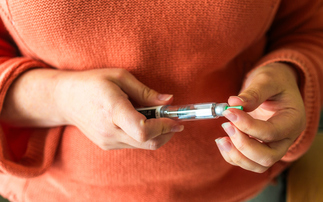One of the most controversial developments in the protection industry over recent months has been the use of Subject Access Requests (SARs). Russ Whitworth told Owain Thomas a war with doctors may not actually be on the cards
The use of GP reports (GPRs) to obtain medical information for underwriting has become an increasingly bigger burden for the protection industry.
This has become more and more apparent as insurers increasingly raise their underwriting limits and do as much as possible to prevent the need for further medical evidence.
Complaints usually centred on the length of time for GPRs to be returned, in some cases they were not even returned, but also included the inconvenience of clients needing to return to their GP for special check-ups to address the concerns.
What came first is not entirely clear, but reports emerged of the ABI scrapping its GPR agreement with doctor's representatives, the British Medical Association (BMA), while insurers started using data protection legislation to request full patient medical records.
The only one of those to be publicly named so far is Legal & General.
Russ Whitworth, underwriting and claims director for protection at Legal & General, has been at the centre of the insurer's operation and told COVER exclusively why it had chosen the path.
"We're doing this to make us more attractive from a customer proposition angle," he said.
"We think if you have better information at the new business stage you're going to end up paying more claims and repudiating fewer because you're effectively indemnifying the customer from non-disclosure.
"This sometimes is inadvertent because of the questions which underwriters feel the need to ask, which can be quite tricky.
"So we feel we are indemnifying the customer against that problem," he added.
Whitworth also cited the improved turnaround speed of SARs compared to GPRs, and better overall return rates.
While cagey with the exact numbers, the improvements witnessed since introducing the policy across the product range in November are clearly strong enough to receive his backing.
"Under the Data Protection Act, SARs should be returned within 40 days, so we know exactly how quickly they come back and while I don't want to make that public, we believe they are coming back quicker than GPRs and targeted reports," he continued.
"SARs have got a better return rate too.
"Again, I'm not keen to give that away to our competitors, but I can assure you it's another good reason for us to be doing it.
"So really you've got the speed, the return rate and ultimately that you will pay more claims, I think they are the main reasons for doing SARs," he added.
Many comments about the use of SARs have focused on supposed lower costs for insurers, with legislation stating fully electronic records should only cost £10 to obtain and those involving paper records up to £50.
It appears the fees are not set in stone and, as Whitworth explained, can run into three figures.
However, while the average cost for L&G is ‘more in the region' of the latter figure, less than the original GPR agreement of £97, this is still more expensive than a typical targeted report.
So where do the adviser and client fit into this package?
According to L&G's process, nothing changes from the current GPR route.
"The customer doesn't have to do anything more than they do at the moment - which is just sign the consent form and be informed about what we're about to do," Whitworth said.
"The agent doesn't need to do any more either."
So once the insurer has the client's consent and has received the full medical record, perhaps the biggest concern is raised - what happens with all that extra information?
Here Whitworth is adamant that the industry has been dealing with this for sometime already and that the customer suffers no detriment.
In fact, if any extra material is included that supports the client's case, this is used to adjust the underwriting accordingly.
"The Access to Medical Records Act governs what's right and proper in the context of companies requesting medical evidence and the idea behind SARs is to follow the ethos of that act," he said.
"Even though the industry asks specific questions on a GPR that should not bring about gratuitous information to which we are not entitled, we still receive it all the time, I can't stress that enough.
"So the industry already has a proven track record of receiving that information and treating it appropriately and with respect.
"What we certainly don't do is take account of any information to which we're not entitled.
"If any information is given to which we are not entitled which would count against the customer we completely ignore it.
"And if there's any gratuitous information that could count in favour of the customer we take it into account.
"So it's not a new problem and we are not taking advantage of it - if it counts for the customer we take it into account and if it's against the customer we ignore it completely," he added.
Whether GPs are so supportive of the move may be open to debate.
Following the breakdown of the ABI-BMA agreement it was reported that the BMA had pursued legal action to protect its interest.
And one of the great concerns raised around the protection industry has been what effect using SARs will have on insurer-doctor relations.
According to L&G though, very little has changed from the GPR stage.
"We've had very little resistance from GPs," Whitworth continued.
"The industry gets negative feedback from a minority of GPs over GPRs, we get occasional feedback from GPs on SARs.
"I don't know why, but this is more of an administration request where the administration staff of the surgery can send us the records.
"So I don't buy the argument that this is a burden on GPs, I don't buy it at all," he added.
And Whitworth emphasised that the ABI have given SARs its blessing as an alternative to GPRs.
He also added that any questions posed to him by the BMA had been responded to fully.
As one of the protection market's major players, Legal & General has the potential to influence its course, as illustrated by the move to SARs.
So will it be pushing for a new agreement between the ABI and BMA?
At the moment, it appears the provider is more than content with the status quo.
"I see SARs as the future for L&G - whether others in the industry choose to follow, we'll see," Whitworth said.
"It's our strategy at L&G because we think it's good for customers.
"We don't want to take advantage of our size, some people suggest biggest isn't always best, but we want to lead the market with things like SARs and open people's eyes to the opportunities," he concluded.











